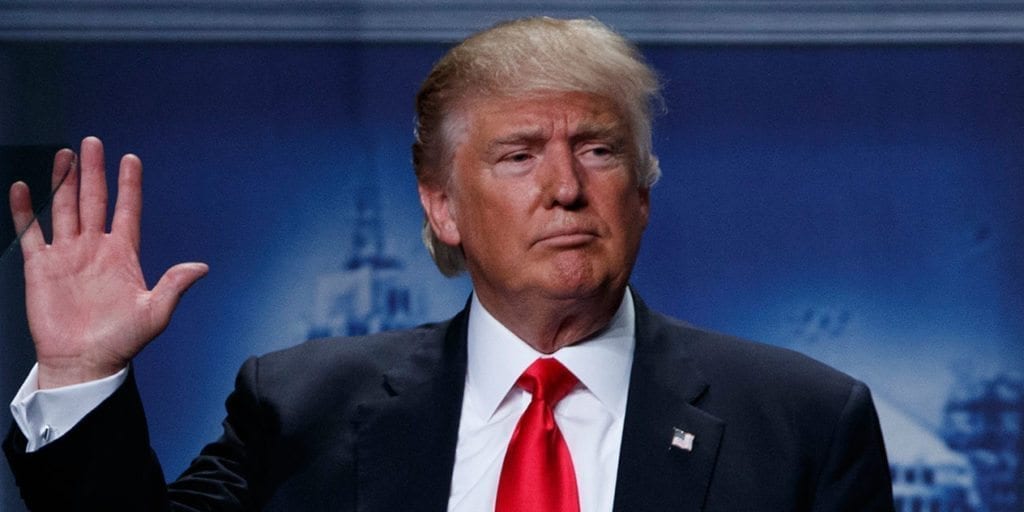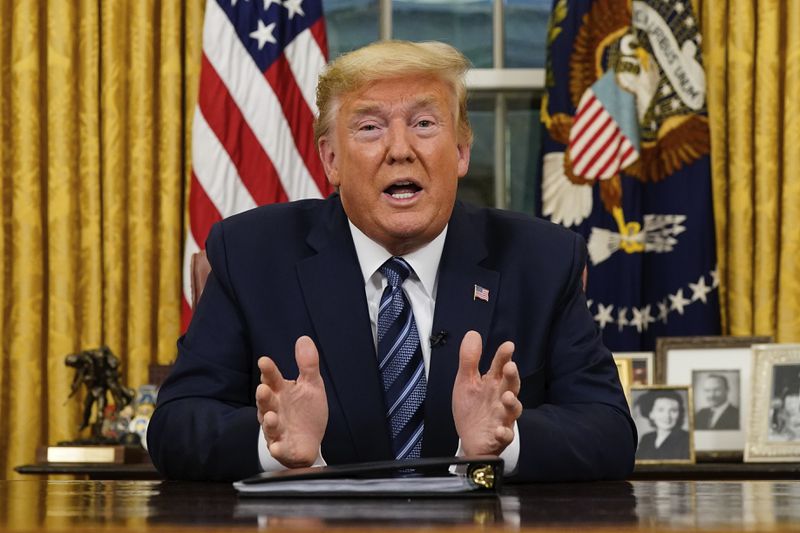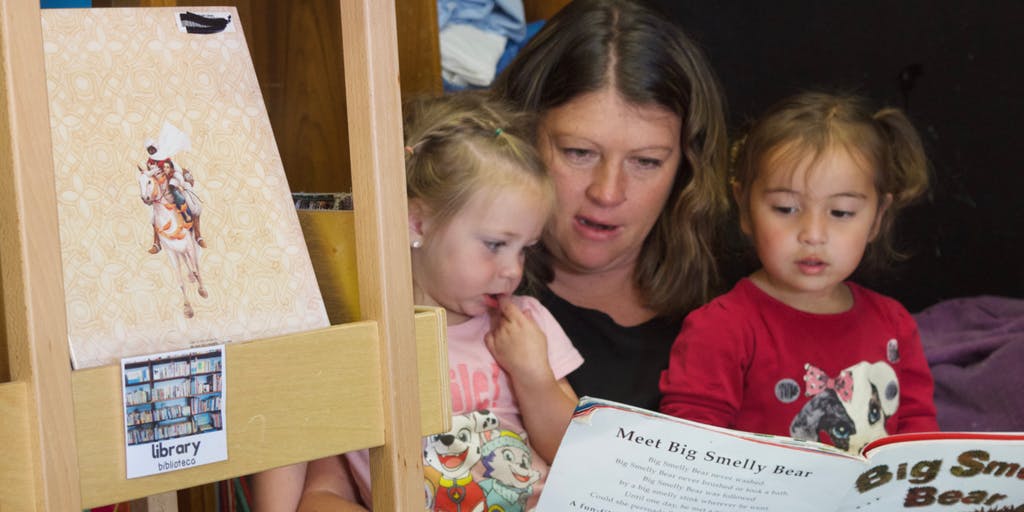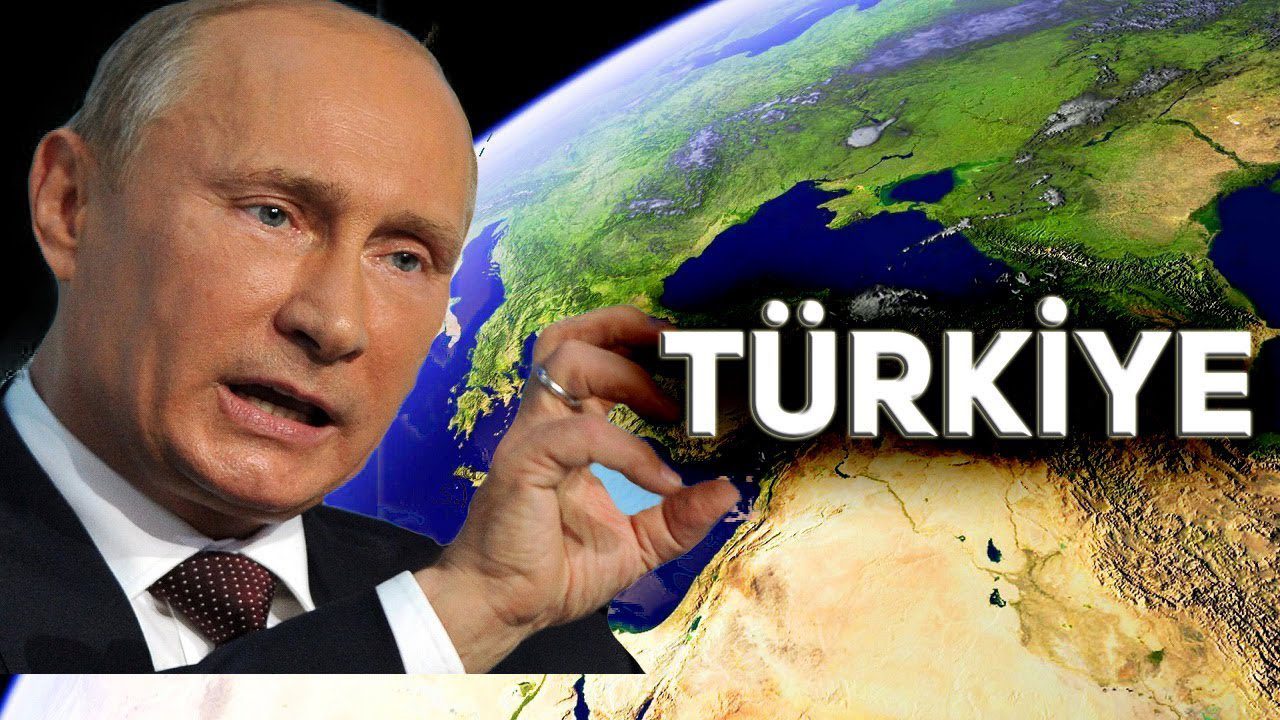Kimden: The Hill [thehill@email.thehill.com]
Tarih: Thursday, March 12, 2020
President Trump, seeking to slow the spread of the coronavirus and help millions of at-risk Americans, suspended most travel to the United States from Europe beginning on Friday, backed federal help for those who are quarantined and said small businesses will get billions of dollars in federally backed loans to help them ride out the economic downturn.
In a somber, 10-minute address to the nation from the Oval Office, the president shed much of his recent finger-pointing and stubborn skepticism about the severity of COVID-19 and rallied Americans to heed warnings from physicians and public health experts and to work together.
“Smart action today will prevent the spread of the virus tomorrow,” Trump said. “This is just a temporary moment of time that we will overcome as a nation and as a world.”
The president — conceding the country faces a prolonged period of extraordinary aversions to crowds, indoor living, teleworking and forfeiture of travel, entertainment and sports — outlined actions aimed at blocking the escalating spread of the respiratory virus and assisting Americans and businesses harmed medically and economically.
Using his executive authority, Trump said he ordered a 30-day freeze on travel by foreigners from Europe to the United States beginning midnight on Friday, with the exception of travelers from the United Kingdom (The Hill). Italy is the epicenter of the crisis in Europe and cases of COVID-19 have been reported everywhere in the EU. But Trump also added a rhetorical flourish about halting cargo and shipments from Europe, which he was forced to correct on Twitter soon after his televised remarks. By then, however, international financial markets had already reacted negatively.
Politico: Trump’s new travel ban sidesteps his own European resorts.
The State Department on Wednesday issued a Global Level 3 health advisory urging all U.S. citizens to reconsider travel abroad because of the virus.
Trump said he will “soon” take emergency action to help workers who are forced to remain home because of illness, quarantine or to help others during the coronavirus crisis and urged Congress to do the same. While he did not specify what type of “relief” he has in mind, he appeared to support paid sick leave, which is expected to come to a vote in the House this week.
The president added that recommendations and guidance about school closures and other restrictions and warnings to affected communities will be forthcoming from the administration.
Trump said the Small Business Administration, which says it has $18 billion to lend, will provide capital to businesses in affected states and territories to ride out the battering the virus is causing. He asked Congress to appropriate an additional $50 billion for SBA’s lending program.
Trump said he would order tax deferrals for “certain individuals” and industry sectors to inject $200 billion into the economy. The president also reiterated his support for a payroll tax holiday, a proposal that has not won broad support on Capitol Hill this week.
Trump’s tone about the dire medical consequences faced by America’s elderly, infirm and medically challenged signaled to the public, including in the rest of the world, that the contagion is likely to worsen and remain a frightening experience for many.
Earlier in the day, the administration’s leading expert in coronaviruses and public health crises told lawmakers that America is in the early days of an emergency for which there are no known cures.
“I can say we will see more cases, and things will get worse than they are right now,” Anthony Fauci, director of the National Institute for Allergy and Infectious Diseases, told the House Oversight and Reform Committee on Wednesday. Facing questions from lawmakers, the immunologist explained, “It is 10 times more lethal than the seasonal flu” (The Hill).
While Fauci was speaking, the virus became a new reality in the Capitol Hill office of Sen. Maria Cantwell (D-Wash.), whose aide tested positive for the virus, went into isolation and forced the closure this week and cleaning of the senator’s office. The senator’s staff said Cantwell and other lawmakers had no direct contact with the aide but staff members are being tested. Washington state is experiencing an outbreak of the deadly pathogen, resulting in 30 deaths (The Hill).
In the United States, the virus has killed 38 people among 1,312 known cases of infection, as of this morning. The actual tally of who has contracted the virus is likely much higher, but without widespread testing, data is limited.
The Hill: Hospitals are bracing for an onslaught of COVID-19 patients and worry about shortages of masks and other protective gear for their employees.
“Unfortunately, at present, public health experts anticipate shortages in the supply of personal respiratory devices available for use by healthcare workers in mitigating further transmission,” Trump said on Wednesday, ordering Health and Human Services Secretary Alex Azar to “take all appropriate and necessary steps” to increase emergency availability (McClatchy News).
The New York Times: What does coronavirus do to the human body?
The Associated Press: Tests show the new virus can live on some
surfaces for up to three days and lives airborne for hours.
The Hill: The Centers for Disease Control and Prevention has been faulted for a slow response to the U.S. coronavirus outbreaks, specifically mistakes in constructing strict protocols for who initially received testing, flawed test kits distributed by CDC and muddled messaging from top officials. Public health experts insist the United States lost valuable time because of limited testing of sick patients, which allowed COVID-19 to spread for weeks in the country without intervention.
The New York Times podcast The Daily, also explored CDC’s decisions and explains some of the research innovations that briefly filled a testing void in Washington state.
Reuters: The White House ordered federal health officials to treat top-level coronavirus meetings as classified, an unusual step that is hampering the U.S. response to the contagion, according to four Trump administration officials.
The New York Times: An 11-year bull market in the United States came to a screeching halt because of a microscopic pathogen that emerged from China in December.
> CORONAVIRUS & CONGRESS: Speaker Nancy Pelosi (D-Calif.) released an economic assistance package late on Wednesday estimated to cost in the billions of dollars, with a vote expected today (The Wall Street Journal).
The Democrats’ measure includes “free coronavirus testing, paid emergency leave for workers, food security assistance, help to states overburdened by Medicaid costs, and strengthened unemployment insurance,” Pelosi said.
Democrats’ especially want to approve paid sick pay to help Americans who are self-quarantining or missing work because of the coronavirus (The Hill).
Pelosi’s goal is to pass a more narrowly drawn measure before lawmakers leave town for a previously scheduled weeklong recess, and revisit potential stimulus measures later on, according to The Associated Press.
“We don’t think they should just throw money out of an airplane and hope some of it lands on the people who are affected,” said Senate Minority Leader Charles Schumer (D-N.Y.), who proposed additional measures including cash infusions for small businesses and student loan forbearance.
House Majority Leader Steny Hoyer (D-Md.) told reporters that the time needed to clear legislation through the House and Senate means a bill probably won’t reach Trump’s desk before both chambers return to Washington the week of March 22.
The Hill: House Democrats’ measure to help Americans cope with the coronavirus pandemic is poised for a vote this week. What’s not in the measure? Tax cuts.
> CORONAVIRUS & INTERNATIONAL: On Wednesday, the World Health Organization officially declared a coronavirus pandemic, a designation that identifies the global spread of COVID-19 and adds urgency to aggressive, intense calls in every country for preparedness and action (The Hill).
The Associated Press: What does “pandemic” mean and what does the designation do?
Italy continues to be crushed by the virus, unable to halt the spread and agonized by the country’s dramatically rising death toll. Close to 200 people died from COVID-19 infections over 24 hours, officials reported on Wednesday. It’s the highest daily increase in mortality in absolute terms registered anywhere in the world since the respiratory illness emerged in China at the end of last year. Italy’s total deaths from the virus this morning number 827 and confirmed cases of infection have exploded by the day. The available tally is 12,462 in Italy.
Prime Minister Giuseppe Conte on Wednesday announced an allocation of 25 billion euros, or $28.3 billion, to prop up the Italian economy. Just a week ago, the government thought it would need less than a third of that fiscal lifeline (NBC News).
On Monday, Italy imposed new restrictions on its entire population of 60 million people. The government on Wednesday ordered all stores, with the exception of pharmacies and food markets, to close in a draconian effort to limit transmission of the infection. Coffee bars, cafes and restaurants must close, although restaurants can make home deliveries. Conte urged Italians not to hoard food. There are no new restrictions on gas stations or public transportation (The Associated Press).
The stats: As of this morning, COVID-19 is blamed for 4,641 deaths worldwide and at least 126,431 confirmed cases in at least 116 countries, according to the latest information.
The Wall Street Journal: How China slowed coronavirus: lockdowns, surveillance, enforcers.
> AMERICAN LIFE: Public health officials across the country continued to advise cities against holding mass-gathering events in a bid to halt the spread of COVID-19 from escalating even further.
The administration on Wednesday night recommended a 30-day quarantine period for the residents of New Rochelle, N.Y. who have been exposed to the virus and are being helped by the National Guard while restricting their movements.
Headlining those announcements on Wednesday were San Francisco and Washington D.C. San Francisco Mayor London Breed issued a city directive on Wednesday, canceling all public gatherings of more than 1,000 people. The directive goes into effect today and will continue for at least two weeks (San Francisco Chronicle).
In the nation’s capital, Mayor Muriel Bowser declared a state of emergency across the district and revealed that six more individuals have tested positive for the virus. Bowser’s announcement came hours after city public health officials echoed Breed and called for the cancellation of all mass gatherings for the remainder of the month. Over the next 20 days, the Capital One Arena is slated to host seven home games for the hometown Capitals, along with two concerts.
“We have person-to-person transmission occurring in the District of Columbia as well as at least two individuals whose reasons for covid-19 have yet to be identified,” said D.C. Health director LaQuandra Nesbitt.
On Capitol Hill, the House and Senate sergeants-at-arms are expected to announce that tours of the Capitol will be canceled for the remainder of March (The Hill). The news came after top lawmakers recommended suspending the visitor access for the time being. Rep. Liz Cheney (R-Wyo.) said continuation would put the “health and safety of these tourists at risk” (The Hill).
The tours also presented a potential issue as a large number of lawmakers are in the age range where they could be seriously sickened by the virus. Nearly half of all senators and one-third of all House members are 65 or older. Sen. Dianne Feinstein (D-Calif.), the oldest member of the Senate, made that case on Wednesday.
“I’m just now coming to the conclusion that I think this place ought to be shut down,” Feinstein said. “It’s serious and it’s increasing.”
Across the country, annual St. Patrick’s Day parades are falling victim to the coronavirus. Fearing transmission at mass public events, parades in New York, Chicago and Philadelphia have been canceled (The Hill).
In the world of travel, Amtrak is expected to experience revenue losses in the “several hundred million dollars” as cancellations are up 300 percent and riders have decided against booking travel in the near future due to the virus. In order to reduce spending, Amtrak is looking to cut services and have workers take “voluntary unpaid leave” (The Washington Post).
The Hollywood Reporter: Tom Hanks says he and Rita Wilson, who are in Australia making a movie, tested positive for coronavirus.
> CORONAVIRUS & SPORTS: The NBA announced late Wednesday night that it is suspending the season until further notice after Utah Jazz center Rudy Gobert tested positive for the coronavirus on Wednesday.
“The NBA is suspending game play following the conclusion of tonight’s schedule of games until further notice. The NBA will use the hiatus to determine next steps for moving forward in regard to the coronavirus pandemic,” the league said.
The announcement came after Wednesday’s game between Utah and the Oklahoma City Thunder was delayed and eventually postponed. Gobert was not in the arena for the game, according to the NBA. Five other games took place on the night.
The Golden State Warriors had announced initial plans early on Wednesday to play today versus the Brooklyn Nets in an empty Chase Center after San Francisco’s decision to ban mass gatherings.
© Getty Images
Earlier in the day, the National Collegiate Athletic Association (NCAA) made the unprecedented decision to play the annual men’s and women’s basketball tournaments without fans in empty arenas due to COVID-19.
NCAA President Mark Emmert announced that the decision was made “in the best interest of public health,” and will continue to monitor the situation in the coming weeks. Selection Sunday for the men’s tournament, better known as “March Madness,” is set for this weekend.
“The decision was based on a combination of the information provided by national and state officials, by the advisory team that we put together of medical experts from across the country, and looking at what was going to be in the best interest of our student-athletes, of course,” Emmert told The Associated Press. “But also the public health implications of all of this. We recognize our tournaments bring people from all around the country together. They’re not just regional events. They’re big national events. It’s a very, very hard decision for all the obvious reasons.”
The Associated Press: Big events banned, NCAA tells fans to stay home over virus.
NASCAR announced that while it will still hold its Truck Series, Xfinity Series and Cup Series races at Atlanta Motor Speedway as scheduled this weekend, it is making changes to pre-race events. Headlining those changes are that driver meetings will now take place in open-air locales with select personnel rather than in garages. Drivers are also being encouraged to carry their own sharpie markers to sign autographs, with those signings taking place in open-air spots (Yahoo!).
Across the Atlantic, Juventus defender Daniele Rugani tested positive for COVID-19, the Italian soccer giant announced on Wednesday night.
“Juventus Football Club is currently activating all the isolation procedures required by law, including those who have had contact with him,” the club said in a statement.
POLITICS: Sen. Bernie Sanders (I-Vt.) maintained on Wednesday that he will remain in the race for the Democratic nomination despite struggling heavily in Tuesday’s elections, winning only one of the six contests and falling further behind in the delegate count to former Vice President Joe Biden.
Sanders told reporters in Burlington, Vt., that he intends to carry on and debate Biden on Sunday in Phoenix in what could be his final attempt to make gains in the field. However, the Vermont Independent seemed to admit that his path to the requisite 1,991 delegates is too steep for him to climb after his losses since the South Carolina primary (The Hill).
“I strongly disagree with that assertion but that’s what millions of Democrats and independents are saying,” Sanders said.
Sanders also toned down the rhetoric during the appearance, declining to attack Biden on myriad issues as he has in the past week, especially on Social Security. Instead, as Jonathan Easley writes, he pointed to a series of policy questions he hopes the former VP answers at the debate, including on health care, immigration, income inequality and criminal justice reform.
The Washington Post: Biden turns his focus from Sanders to Trump — and rebooting his own campaign.
Another problem Sanders is incurring is COVID-19 as it continues to grip the country. He has no rallies or events scheduled as of Thursday morning after Tuesday night’s rally in Cleveland got canceled at the behest of Ohio Gov. Mike DeWine (R), making it difficult for him to reach his supporters as he usually does. Sanders and Biden will compete in four more primaries on Tuesday: Florida, Ohio, Illinois and Arizona.
Biden announced on Wednesday that his campaign will hold “virtual” events in the coming days in Florida and Illinois because of the virus. The former vice president also rolled out a “Public Health Advisory Committee” to provide guidance on how to reduce the threat of the disease (The Hill).
One thing Sanders should not expect: an endorsement from Sen. Elizabeth Warren following her exit from the race last week. According to The New York Times, the Massachusetts Democrat is not expected to endorse either Sanders or Biden, and is likely to “let the primary play out rather than seek to change its course,” according to several sources familiar with Warren’s thinking.
The Washington Post: Sanders doesn’t drop out — but it’s not full speed ahead, either.
The Hill: Rep. Alexandria Ocasio-Cortez (D-N.Y.) says Sanders should continue primary fight.
The Hill: Rep. Jim Clyburn (D-S.C.) urges Biden to pick a black woman as running mate: “African American women need to be rewarded” for loyalty.
The Wall Street Journal: Bernie Sanders faces tough contests ahead, including the Florida primary.
© Getty Images
OPINION
Biden now has a route to the Oval Office — if he navigates the challenges, by Albert Hunt, opinion contributor, The Hill.
12 Steps to Tackle the Coronavirus, by Nicholos Kristof, columnist, The New York Times.
WHERE AND WHEN
The House meets at 9 a.m.
The Senate convenes at 9:30 a.m. and continues its consideration of the nomination of James Danly to be a member of the Federal Energy Regulatory Commission and will hold a vote to invoke cloture.
The president welcomes Taoiseach Leo Varadkar of Ireland to the White House for meetings that are expected to include a discussion of Ireland’s undocumented immigrants in the United States (The Journal). Trump and first lady Melania Trump join the traditional presentation of the Shamrock Bowl by the prime minister.
Catch The Hill’s Campaign Report newsletter, with the latest from The Hill’s politics team. Sign up to receive evening updates, polling data and insights about the 2020 elections.
📺 Hill.TV’s “Rising” program features news and interviews at or on YouTube at 10:30 a.m. ET at Rising on YouTube.
ELSEWHERE
➔ Harvey Weinstein: A New York judge on Wednesday sentenced the former Hollywood producer to 23 years in prison following his conviction on charges of sexual assault and rape. Weinstein, 67, who claimed all his sexual activities with accusers going back decades were consensual, said he was “confused” because he thought the women involved were his friends (Reuters).
“I feel remorse for all of the men who are going through this fight,” he added.
➔ Supreme Court: Justices said Wednesday that the Trump administration can continue its practice of returning asylum-seekers to Mexico along the entire southern border while immigration authorities process their claims. The court said enforcement can go on while the justices decide whether to hear an appeal of lower court rulings that declared the program illegal. Only Justice Sonia Sotomayor said she would have denied the permission. The policy, known as the Migration Protection Protocols, or “Remain in Mexico,” was launched last year. During the 13 months it was fully implemented, the Department of Homeland Security returned more than 60,000 immigrants to Mexico while they awaited an outcome in their deportation proceedings (NBC News).
➔ More in Congress: The House voted on Wednesday to tighten oversight of federal surveillance (The Associated Press). And Attorney General William Barr backed the changes (The Hill). … The House voted on Wednesday to constrain the president’s power to use military action against Iran (The Associated Press). … House Democrats won a round in court to gain access to secret grand jury testimony that was part of former special counsel Robert Mueller’s report about the Russia probe (USA Today). … Senate Republicans joined Democratic colleagues in voting 53-42 on Wednesday to reverse an Education Department student loan rule imposed by Secretary Betsy DeVos that senators said hurt borrowers (The Hill).
➔ D.C. Environmental Film Festival: Tonight through March 22 marks the 28th annual celebration and screening of more than 160 films showcasing wildlife, the environment and planet Earth, all in the nation’s capital. Opening the festival at 7 p.m. at the National Geographic will be the lush and award winning “Okavango: River of Dreams,” filmed primarily in Botswana. It’s the creation of famed wildlife documentarians Dereck and Beverly Joubert.
© Getty Images




/arc-anglerfish-arc2-prod-tronc.s3.amazonaws.com/public/GCXJKBK6GBDCJKPJ22BAZVUX4A.jpg)







